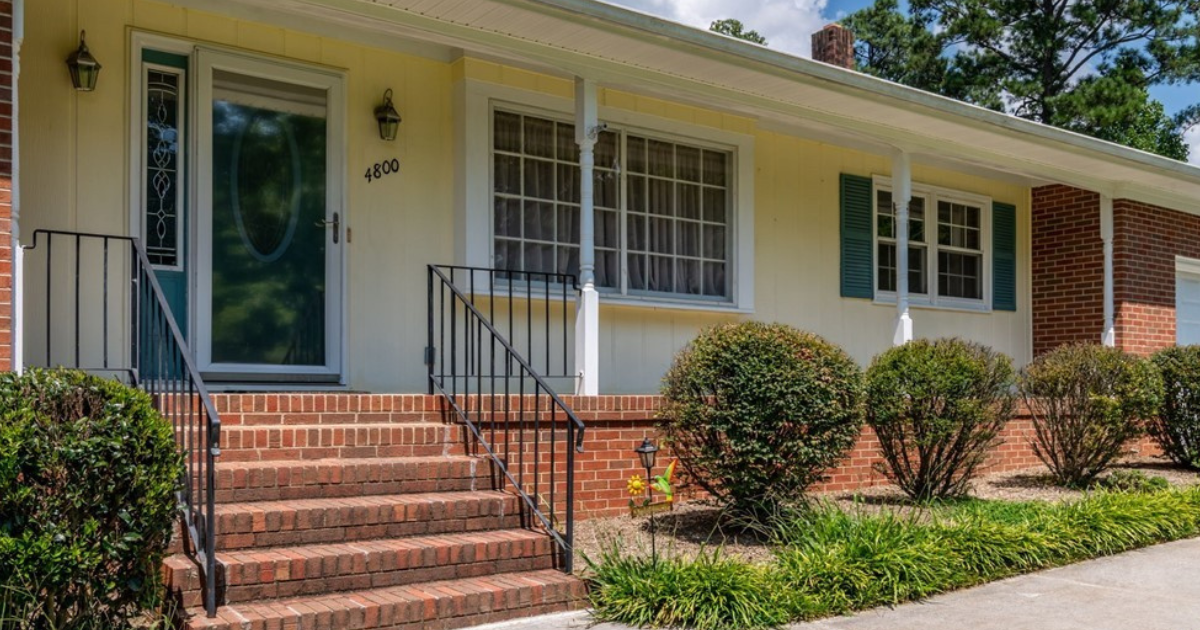Unlocking the Value in Your Home
Your home isn’t just where you live—it’s also one of the largest assets you own. Over time, as you pay down your mortgage and your property value grows, you build equity. A cash-out refinance allows you to turn that equity into cash you can use for major expenses, from paying off high-interest debt to funding home improvements.
But before you move forward, it’s important to understand the details, benefits, risks, and timing considerations. Choosing to do a cash-out refinance isn’t the same as a traditional refinance, and making the right decision could save (or cost) you thousands.
At CapCenter, we’ve helped homeowners across Virginia, the Carolinas, Georgia, Florida, Maryland, D.C., Ohio and now Pennsylvania, use their home equity wisely—always with ZERO Closing Costs. In this article, we’ll walk you through everything you should weigh before deciding if a cash-out refinance is right for you.
What Is a Cash-Out Refinance?
A cash-out refinance replaces your existing mortgage with a new one that’s larger than what you currently owe. The difference between the new loan amount and your old balance comes back to you in cash at closing.
Here’s a simple example:
- Your home is worth $400,000.
- You owe $200,000 on your current mortgage.
- You refinance into a new loan for $280,000.
After paying off your old mortgage, you walk away with $80,000 in cash.
This makes a cash-out refinance unique because it both restructures your mortgage and gives you access to liquid funds—all in a single transaction.
Common Reasons Homeowners Choose Cash-Out Refinancing
A cash-out refinance can serve many different financial goals. Some of the most common include:
- Home Improvements: Renovations, additions, or energy efficiency upgrades can add value and improve your lifestyle.
- Debt Consolidation: Using home equity to pay off credit cards or personal loans with higher interest rates can free up monthly cash flow.
- Major Purchases: College tuition, medical expenses, or funding a business.
- Investment Opportunities: Some homeowners tap equity to invest in rental properties or other wealth-building opportunities.
While these can all be smart uses, the key is making sure the benefits outweigh the costs and risks.
The Benefits of a Cash-Out Refinance
When used strategically, a cash-out refinance can be a powerful tool. Here are some advantages to consider:
Lower Interest Rates Compared to Other Debt
Mortgage rates are typically much lower than credit cards or unsecured loans. This can make consolidating debt a major win for household finances.
Potential Tax Benefits
Interest paid on mortgage debt may be tax-deductible when used for qualified home improvements (always confirm with a tax advisor).
One Monthly Payment
Rolling multiple debts into a single mortgage payment can simplify your finances and reduce stress.
Long-Term Financing
Unlike short-term loans, a mortgage spreads repayment out over many years, which can lower your monthly obligations.
And with CapCenter’s ZERO Closing Cost structure, you avoid thousands in upfront fees that many other lenders charge—putting more of your home equity directly in your pocket.
The Risks and Trade-Offs
Of course, a cash-out refinance isn’t free money. It comes with risks you should weigh carefully.
Resetting the Clock
If you refinance into a new 30-year loan, you may extend your mortgage term, paying more interest over time.
Higher Monthly Payments
Increasing your loan balance means your payments may rise, depending on the rate and term.
Risk of Foreclosure
Unlike credit card or personal loan debt, your home is collateral. If you can’t make payments, you could risk losing your house.
Equity Reduction
Tapping too much equity can leave you vulnerable if home values decline. It’s important to keep a cushion.
At CapCenter, we review every client’s situation to help ensure a cash-out refinance supports their long-term goals—not just short-term needs.
How Much Can You Cash Out?
Lenders generally limit how much equity you can access. Most conventional loans allow you to borrow up to 80% of your home’s appraised value.
Example:
- Home value: $400,000
- Max new loan (80%): $320,000
- Current balance: $200,000
- Maximum cash available: $120,000
Some government-backed loans (like VA loans) may allow higher loan-to-value ratios, but guidelines vary.
CapCenter’s loan officers walk clients through exact numbers, so you’ll know precisely how much equity you can access before moving forward.
Timing: When Does a Cash-Out Refinance Make Sense?
Timing is critical. A cash-out refinance may be smart when:
- You have significant equity built up (typically at least 20%).
- Interest rates are favorable, making your new loan competitive.
- You plan to stay in your home long enough to benefit from the refinance.
- The funds will be used productively—for value-adding improvements or paying off costly debt.
If rates are much higher than your current mortgage, consider whether a Home Equity Loan might be a better fit. CapCenter recently introduced this option, letting you access equity while keeping your low first-mortgage rate intact.
Comparing Cash-Out Refinancing vs. Alternatives
Before you commit, it’s wise to compare other financing tools:
- Home Equity Loan (HEL): A second mortgage with fixed payments, leaving your first mortgage untouched.
- Home Equity Line of Credit (HELOC): A revolving line of credit you can draw from over time.
- Personal Loan: Unsecured but often comes with higher interest rates.
Each has trade-offs. A cash-out refinance typically offers lower rates but replaces your entire mortgage. A HEL or HELOC may be smarter if your existing rate is much lower than today’s market.
CapCenter can help you evaluate both paths—we offer cash-out refinances and home equity loans.
The CapCenter Difference: ZERO Closing Costs
One of the biggest hurdles with refinancing is the upfront expense. Traditional lenders charge thousands in origination fees, appraisal costs, title insurance, and closing costs.
CapCenter eliminates that burden. With our ZERO Closing Cost structure, you don’t have to worry about upfront expenses eating into your equity. That means the cash you take out is truly working for you.
Combine that with our experienced team and streamlined process, and you’ll see why so many homeowners trust CapCenter for their refinancing needs.
You can also use our free Mortgage Calculator or Home Value Estimate Tool to get a sense of how much you might qualify to borrow before speaking with us.
FAQs About Cash-Out Refinances
Is a cash-out refinance the same as a HELOC?
No. A cash-out refinance replaces your existing mortgage with a larger one. A HELOC is a separate line of credit.
Can I use the cash for anything I want?
Yes, but lenders may ask how you plan to use the funds. Keep in mind, interest is only tax-deductible if used for home improvements.
Will I need a new appraisal?
In most cases, yes. The appraised value determines your available equity.
Does CapCenter really cover all closing costs?
Yes. Unlike other lenders who waive some fees but roll others into your loan, CapCenter truly covers all lender and third-party closing costs.
Is a Cash-Out Refinance Right for You?
A cash-out refinance can be a smart way to unlock your home’s equity—but it’s not right for every situation. The key is weighing your financial goals, timing, and alternatives.
At CapCenter, we’re here to guide you through the decision. With ZERO Closing Costs, a dedicated team, and options like both cash-out refinances and home equity loans, we make it easier to access the value you’ve built in your home.
If you’re ready to explore your options, start today with our Home Value Estimate Tool or connect with a CapCenter loan officer to see how much you could save.




